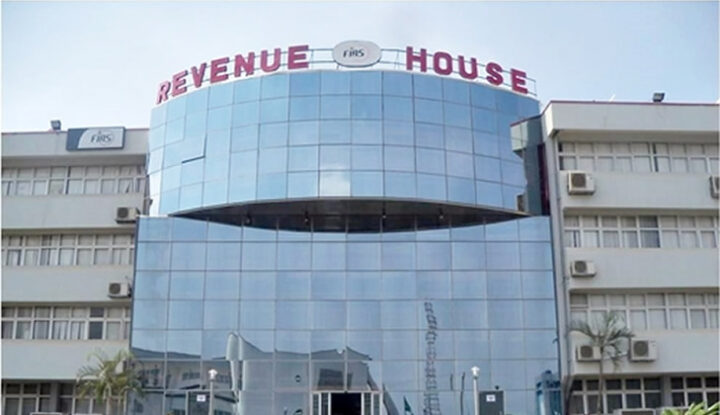The Federal Government’s major revenue-generating agencies, including the Federal Inland Revenue Service (FIRS) and the Nigeria Customs Service (NCS), have collectively generated a total of ₦21 trillion in the first half of 2025, surpassing initial projections and underlining the importance of ongoing fiscal reforms.
According to official data made available from the Ministry of Finance and coordinating agencies, five key institutions contributed significantly to the government’s revenue drive within the six-month period under review. These included the FIRS, NCS, Nigerian Upstream Petroleum Regulatory Commission (NUPRC), Nigerian National Petroleum Company Limited (NNPC Ltd.), and the Nigerian Ports Authority (NPA).

The breakdown showed that the FIRS maintained its leadership position in revenue mobilization, contributing more than half of the ₦21 trillion collected, driven largely by increased compliance in company income tax, value-added tax (VAT), and petroleum profit tax. Officials attributed this strong performance to improved digital monitoring tools, expanded tax nets, and tighter enforcement measures on both corporate and informal sectors.
The Nigeria Customs Service (NCS) was also pivotal, accounting for a significant percentage of the collection. Customs revenue was boosted by heightened import duty compliance, stricter border controls, and automation of clearance processes. Despite challenges such as smuggling and foreign exchange volatility affecting imports, Customs’ enhanced monitoring systems ensured that leakages were minimized, resulting in improved performance.
The Nigerian Upstream Petroleum Regulatory Commission (NUPRC) played a key role through royalties, licensing fees, and regulatory charges from oil and gas operators. Its collections were aided by rising crude oil prices in the international market and improved enforcement of payment obligations by upstream operators.
In addition, the Nigerian Ports Authority (NPA) reported strong earnings driven by higher shipping traffic, increased tariffs, and improved port operations efficiency. The authority’s ongoing infrastructure upgrades, including the rehabilitation of berths and digitization of port processes, also contributed to higher income generation.
The Nigerian National Petroleum Company Limited (NNPC Ltd.), though primarily an operator, also recorded substantial remittances into government coffers through dividends, royalties, and crude oil sales receipts. Government sources confirmed that stronger oversight over NNPC’s operations ensured improved transparency in its remittances compared to previous years.
Experts say the ₦21 trillion half-year collection underscores the effectiveness of reforms in Nigeria’s fiscal and revenue administration. However, they caution that while the figure appears impressive, sustainability remains key, especially as the government continues to grapple with expenditure obligations, debt servicing, and subsidies on key sectors.
The federal government’s total expenditure obligations for the same period stood at more than ₦18 trillion, leaving a modest fiscal surplus on paper. But economists argue that with capital expenditure, social spending, and public debt servicing yet to be fully accounted for, fiscal pressures remain significant.
Speaking on the development, a senior official at the Ministry of Finance noted that the improved collections were a direct result of President Bola Tinubu’s economic reforms aimed at plugging leakages and broadening the tax base. He emphasized that technology-driven initiatives by the FIRS, Customs, and other agencies have significantly reduced revenue diversion, while strengthening accountability.
Industry experts further argue that Nigeria’s fiscal future lies in diversifying its revenue sources beyond oil, with tax and non-oil income taking a front seat. The impressive collection in H1 2025 is therefore being seen as a stepping stone toward achieving a more resilient revenue structure for Africa’s largest economy.
Tax analysts have also praised the synergy between agencies, noting that for the first time in years, revenue bodies are working more closely to align data, share intelligence, and ensure that duplication of efforts is minimized. This collaboration has not only improved efficiency but also boosted government’s confidence in meeting its budgetary targets.
However, stakeholders warn that the sustainability of this revenue growth will depend on continuous investment in digital infrastructure, enforcement, and consistent policy direction. Issues such as multiple taxation, policy inconsistency, and the rising cost of doing business remain major challenges that could hinder compliance if not addressed.
For the Nigeria Customs Service, the challenge of smuggling and porous borders persists. Stakeholders have called for enhanced collaboration with security agencies to tackle revenue losses from illegal trade activities. Similarly, for the FIRS, bringing more of the informal sector into the tax net remains a priority, as millions of small businesses and traders continue to operate outside the tax system.
The government has assured that it will sustain the momentum by empowering revenue agencies with more tools and autonomy to meet targets. In line with this, the Finance Ministry is working on harmonizing revenue reporting templates to ensure real-time transparency and reduce discrepancies in figures reported by different agencies.
Looking ahead, analysts say that if Nigeria can maintain this revenue performance in the second half of 2025, the total annual collection could surpass ₦40 trillion, representing one of the strongest fiscal performances in the country’s history. Such an achievement would ease the burden on debt financing and provide the government with more fiscal space for capital investments in infrastructure, education, and health.
Ultimately, the ₦21 trillion collected in H1 reflects a turning point for Nigeria’s public finance management. With reforms gaining momentum and compliance improving, the government is on track to strengthen fiscal stability, enhance investor confidence, and lay the groundwork for sustainable economic growth.
Support InfoStride News' Credible Journalism: Only credible journalism can guarantee a fair, accountable and transparent society, including democracy and government. It involves a lot of efforts and money. We need your support. Click here to Donate
